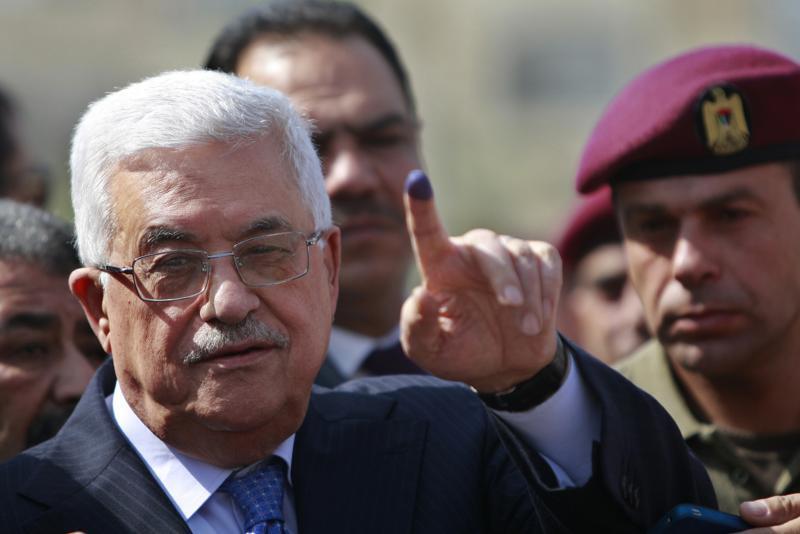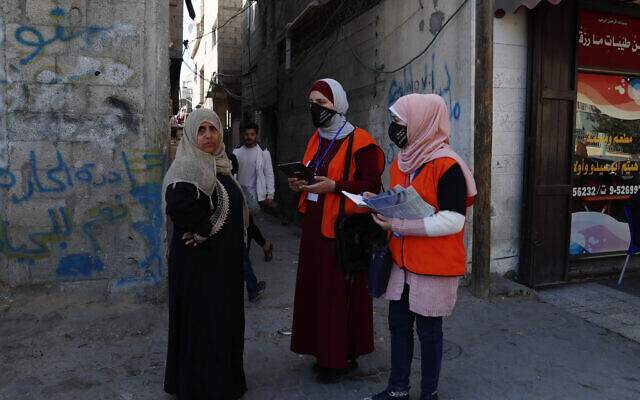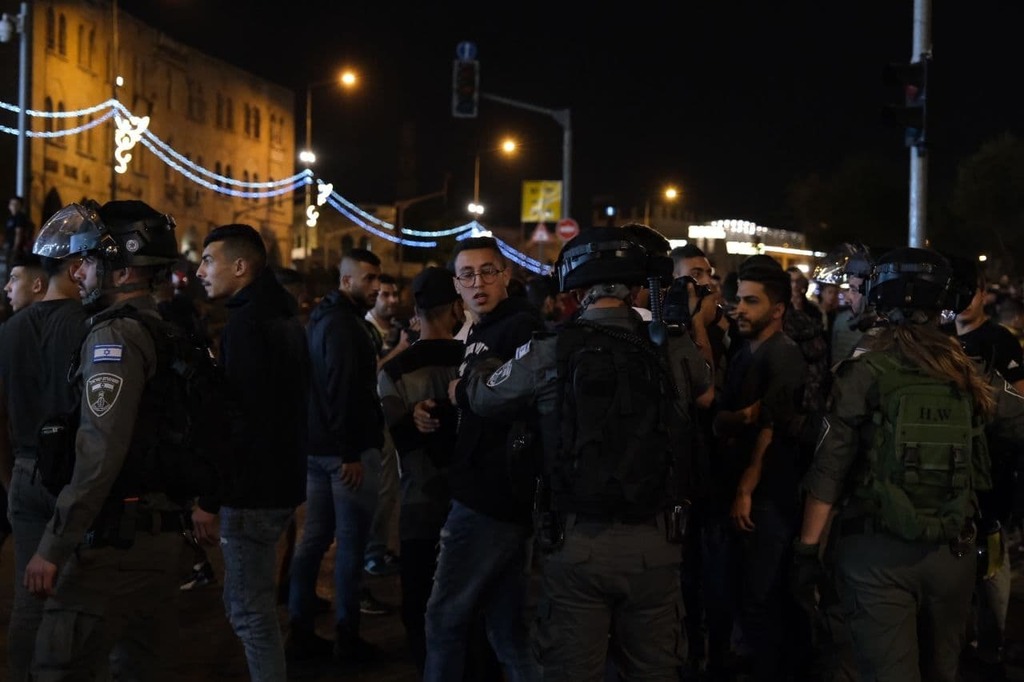The Palestinian leadership will convene later this week to discuss whether to postpone next month’s elections if Israel does not allow voting in East Jerusalem, where days of violence have ratcheted up tensions.
Palestinian Prime Minister Mohammad Shtayyeh said at a Cabinet meeting Monday that the leadership would discuss the elections on Thursday when representatives of all the main factions are set to meet.
3 View gallery


Palestinian President Mahmoud Abbas shows his ink-stained finger after casting his vote during local elections, at a polling station in the West Bank city of Ramallah
(Photo: AP)
Palestinian President Mahmoud Abbas, whose Fatah party is riven with divisions and expected to perform poorly in the May 22 parliamentary elections, could cite Jerusalem as a reason for delaying or canceling the vote. That would be welcomed by Israel and much of the international community, which fears the militant Hamas movement will gain power and influence in the election.
Israel captured East Jerusalem from Jordan in the 1967 Six-Day War and annexed it in a move not recognized internationally. Israel views the entire city as its unified capital and bars the Palestinian Authority from operating there. The Palestinians want East Jerusalem to be the capital of their future state. Israel has not yet said whether it will allow voting there.
Under the interim Oslo Accords, some 6,000 Palestinians in East Jerusalem are allowed to submit ballots through Israeli post offices, which requires Israel’s permission. The rest of the 150,000 Palestinian voters in the city can cast ballots with or without Israel’s permission, according to the Palestinian elections commission.
3 View gallery


Members of the Central Elections Commission’s field team in Gaza City register a local woman on the electoral roll
(Photo: AP)
Those 6,000 voters are unlikely to be decisive in an election in which 2.5 million Palestinians are eligible to cast ballots in the West Bank and Gaza. But their participation has great symbolic importance. Many Palestinians believe that holding the elections without them amounts to recognizing Israel’s claims to the city.
At a Fatah meeting held Sunday night, Abbas called Jerusalem a “red line,” saying he would not accept holding general elections without the full participation of its residents. He called on the international community to pressure Israel to allow the elections to be held in the city.
But delaying or canceling the elections could prove controversial. Nour Odeh, a parliamentary candidate for a rival list, tweeted that calling them off would be “an attempt to make the status quo of stagnation & internal failure permanent.”
“Using Jerusalem as an excuse is also cynical. Israel must not (have) veto power over our right to hold elections. This is a battle we must fight and win!” she wrote.
The issue has grown even more fraught in recent days as Israeli police have clashed with Palestinian worshippers over restrictions on gatherings imposed during the Muslim holy month of Ramadan. Palestinian militants in the Hamas-ruled Gaza Strip have fired dozens of rockets in recent days in support of the protests, raising the prospect of a wider outbreak of violence.
In January, Abbas decreed that parliamentary elections should be held May 22, following by a presidential election on July 31. They would be the first since 2006, when Hamas won a landslide victory in parliamentary elections. That sparked an internal crisis culminating in the militant group’s violent seizure of Gaza from Abbas’ forces the following year.
Since then, the Palestinians have been split by rival authorities, with Hamas ruling Gaza and Abbas’ authority limited to parts of the West Bank.


